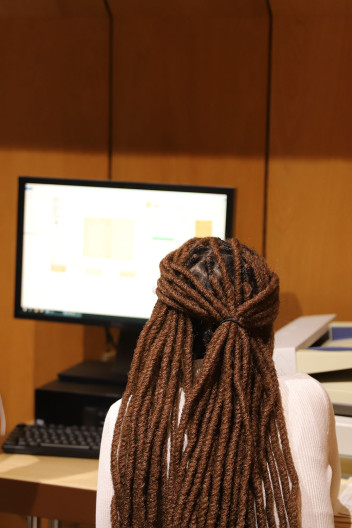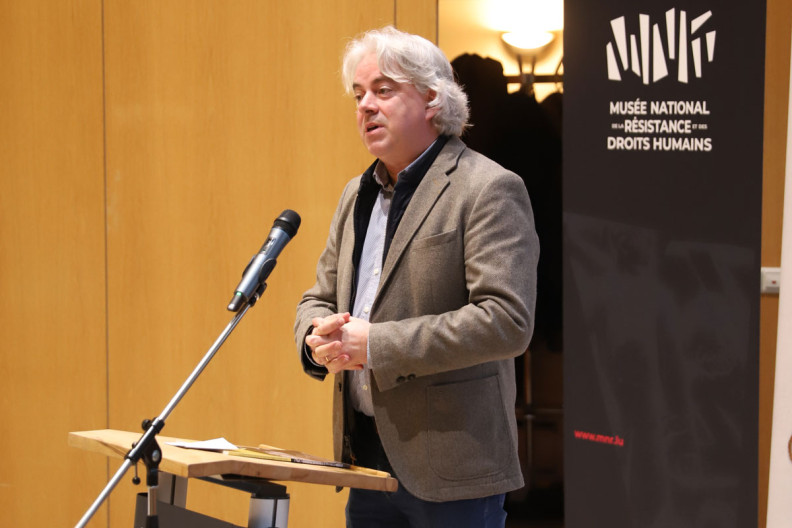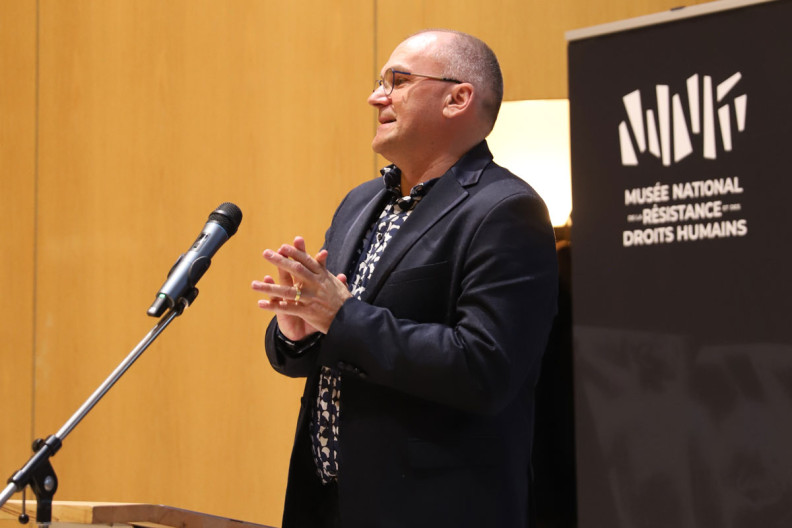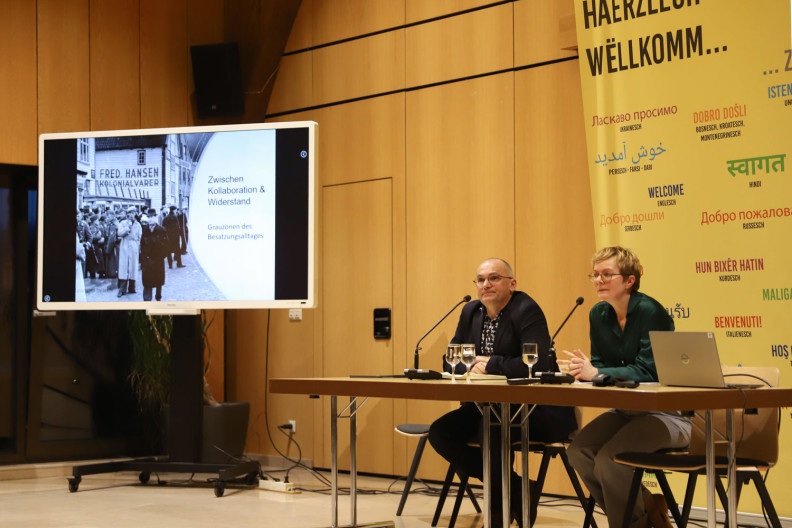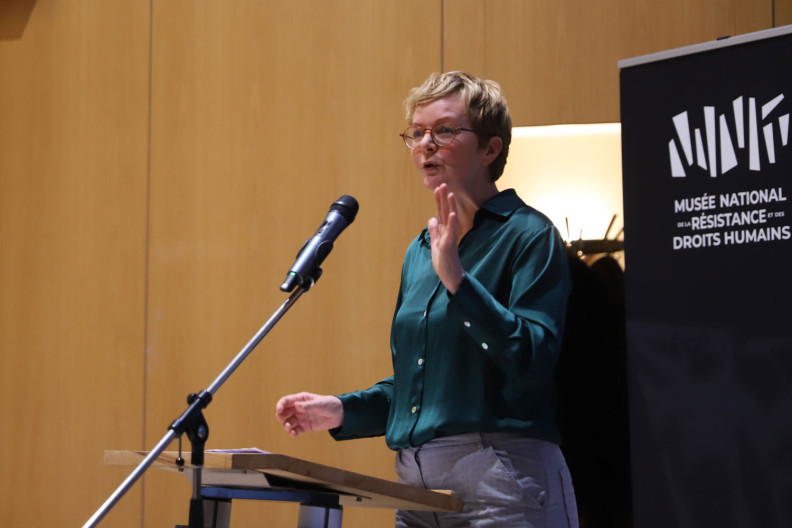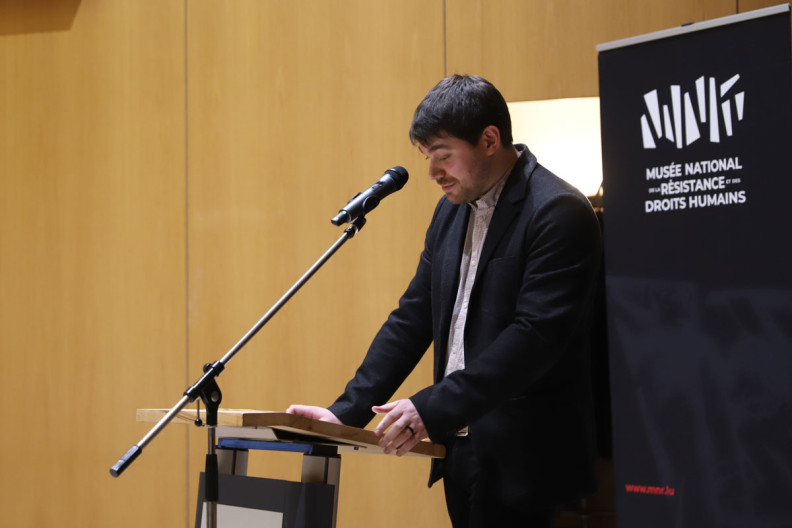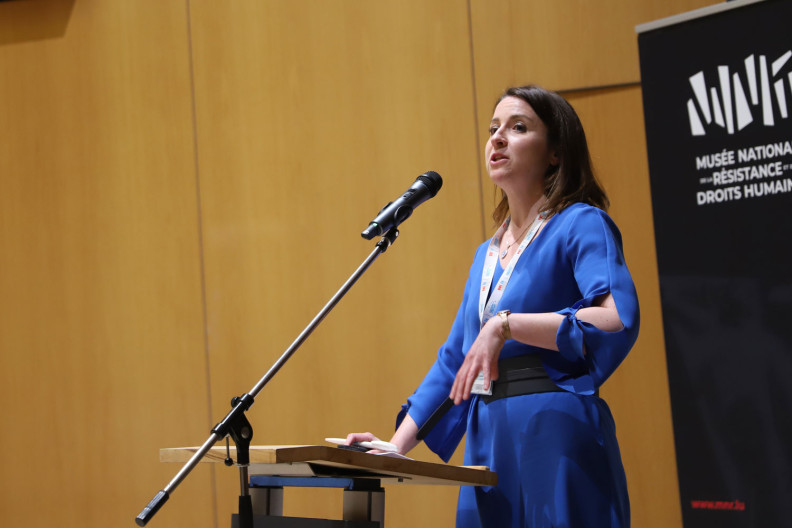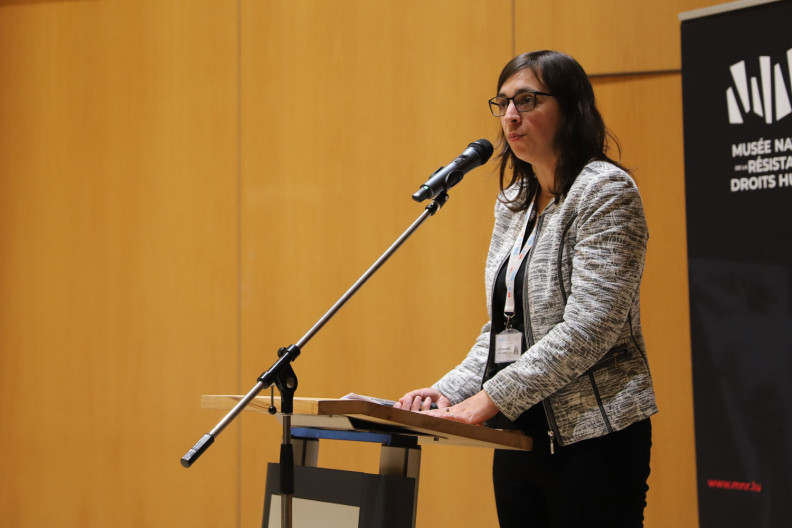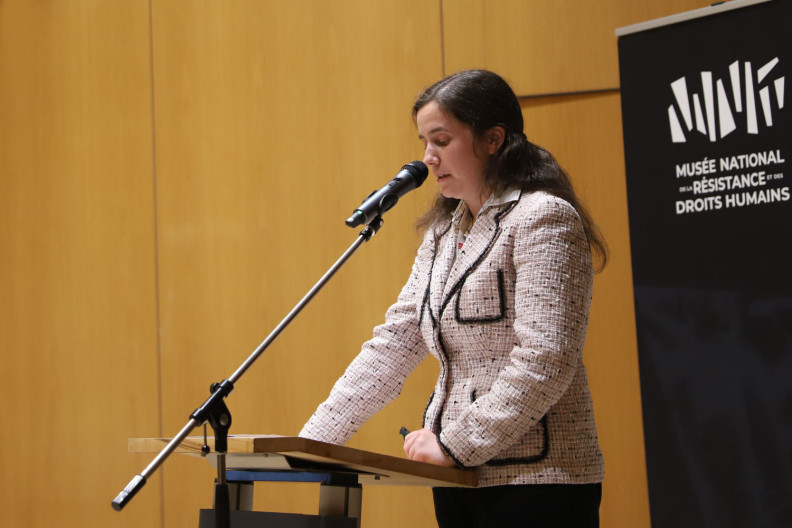On 22 February 2023, the team of the WARLUX project: the project’s PI Ass.-Prof. Dr. Denis Scuto, Dr. Nina Janz, Susanne Schmolze and Sarah Maya Vercuysse invited the public to Schifflange to participate in the Forum Z on war experiences in Luxembourg, particularly in Schifflange, during the Second World War. This Forum Z also served as a collection day, as citizens were given the opportunity to share personal documents from the war and to have them scanned on-site.
The WARLUX project is dedicated to the study of the lives of (forced) recruits in the Reichsarbeitsdienst and Wehrmacht and their families during the German occupation of Luxembourg. Its focus lies on the biographies and war experiences of these individuals using administrative records from local, national, and international archives as well as ego-documents. During a nation-wide crowdsourcing campaign organised in 2021, the project members had already built a unique digital collection of several thousand letters, diaries, photographs, and other documents.
The cooperation with the Musée National de la Résistance et des Droits Humains (MNRDH) and the commune of Schifflange was vital to the success of this particular Forum Z. The C²DH was delighted to have been invited by the commune to host the event at the Salle Grand-Duc Jean located in the town hall, which offered an ideal setting. The program followed the triple purpose of the event – crowdsourcing, presentations, and discussion. The presentations introduced current research on the topic of life under occupation in Europe during the Second World War in Europe in general and Schifflange in particular, whereas the WARLUX Team presented their project and preliminary results. Q & A sessions as well as a reception provided ample space for discussion and interaction.
To attract a large audience, the event had been widely advertised in print, audio and social media as well as through the dissemination of posters and flyers in and around Schifflange. The team had also invited the participants in the original crowdsourcing campaign and organisations dedicated to the commemoration of the war. This approach proved to be successful, as about 60 people found their way to the event.
The first hour was dedicated to the crowdsourcing of war related personal documents from the Schifflange population. The “Digital History Lab” of the C²DH had set up a scanning station to professionally digitize the documents brought in by the visitors.
At 17:00, the mayor of Schifflange, Paul Weimerskirch welcomed the audience. In their respective opening speeches, Prof. Dr. Andreas Fickers and Ass.-Prof. Dr. Denis Scuto, director and deputy director of the C²DH, explained the concept of Forum Z and stressed the importance of further research into the history of Luxembourg during the Second World War. Denis. Scuto introduced the WARLUX project and highlighted the complexity of historical research which needs to move beyond simplified narrative frameworks, since historians aim to further understanding through detailed analysis, not judgment. He also pointed out the need for a comparative chronological as well as transnational approach.
The latter was at the heart of the keynote speech by Prof. Dr. Maria Fritsche (Norwegian University of Science and Technology) who focuses on life under occupation during the Second World War, military justice, holocaust, and genocide studies. Her presentation dealt with National Socialist occupation from a European perspective, focusing on several key aspects of life under occupation, including war crimes and crimes against humanity, the violation of basic human rights, the organisation of food supply, food shortages and rationing in occupied countries as well as the complex, multi-faceted and often ambiguous relationships between occupants and the population.
Jérôme Courtoy’s talk (MNRDH) shifted from the broader European to a microhistorical perspective and provided an overview over the history of Schifflange during the war. Thus, his presentation formed an excellent backdrop for the presentation of project WARLUX which followed.
Dr. Nina Janz started by outlining the project design and its actor-centred approach. She explained the use of both administrative resources and ego-documents to reconstruct biographies and individual experiences of conscripts and their families during the war. Sarah Maya Vercruysse continued with the case study on Schifflange which is at the heart of her PhD dissertation on the impact of the (forced) conscriptions on the families at home.
Last but not least, Susanne Schmolze shed light on the use of digital tools for researching war experiences. Through the demonstration of the project's database, she showcased how it enables the organisation and analysis of diverse information collected from various sources. She also illustrated the use of HTR (handwritten text recognition) tools for transcribing and annotating war letters.
After the presentations the researchers had the opportunity to interact closely with the visitors and the contributors. Those who had already participated in the original crowdsourcing campaign were eager to learn how the project had progressed since then and to share memories and news with the team.
The organisers consider this Forum Z a success. First, they are delighted that their invitation attracted a large audience who participated in a lively exchange with the experts. As a result of the new call for contributions, the team received a substantial new collection of letters and documents about Emile Kremer, a recruit from Schifflange who was born in 1924 and died in a German military hospital in early 1944. As he was already part of the sample, the project members had gathered some biographical information about him but are very much looking forward to gaining a deeper insight into his life and experiences during the war by studying his letters and documents. The documents were loaned to the MNRDH and scanned on campus so the originals can be returned to their owner.
The event brought attention to the significance of private and personal war-related documents, such as diaries and letters. The organisers aimed to promote awareness so that more personal documents and memories from various communities are preserved in archives and museums for the benefit of science and the public.
If you would like to share documents about inhabitants from Schifflange during the occupation, the WARLUX researchers would be happy to hear from you at warlux@uni.lu. Documents can also be loaned or donated to the Musée National de la Résistance et des Droits Humains.



